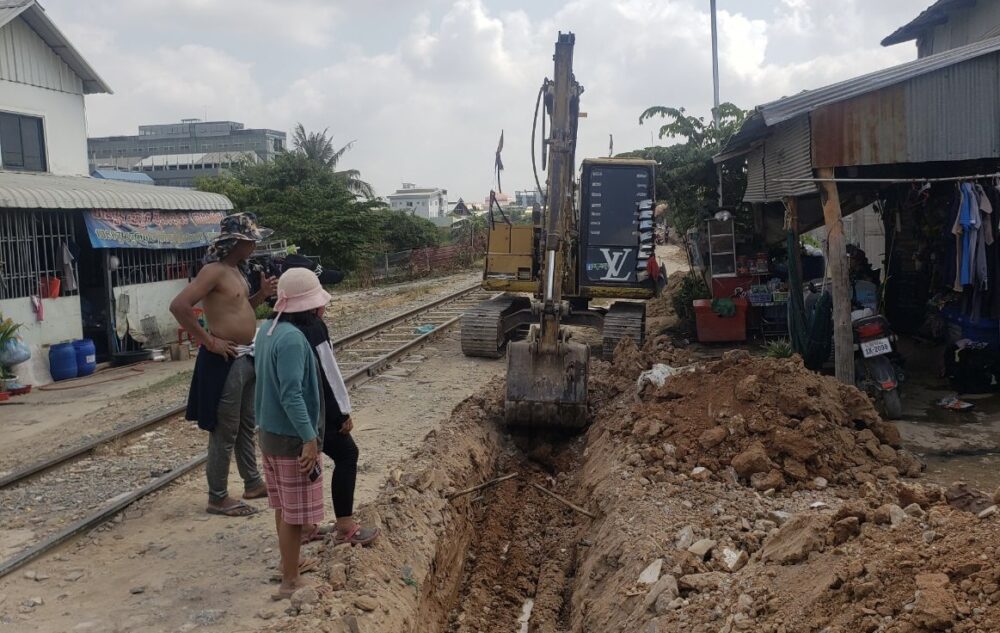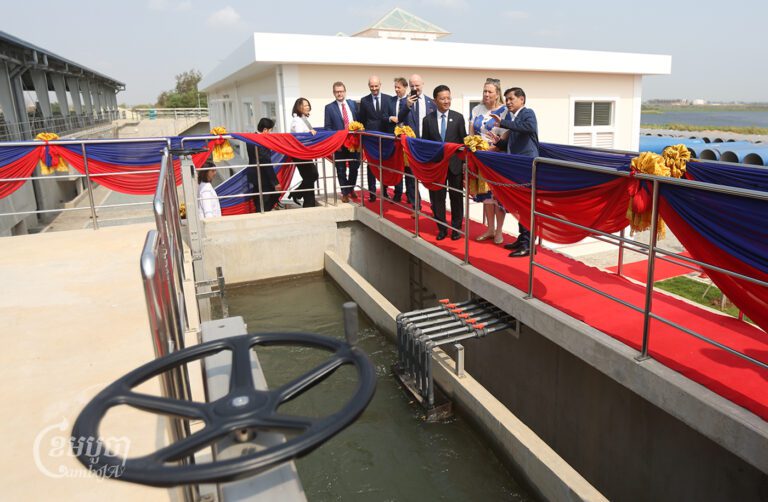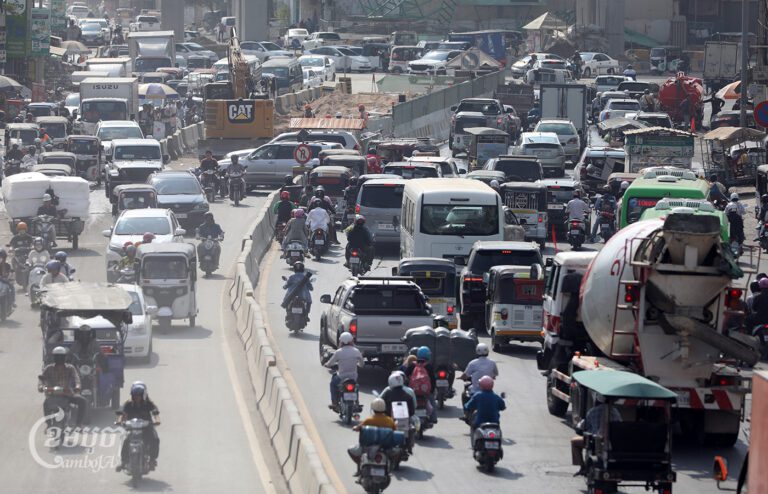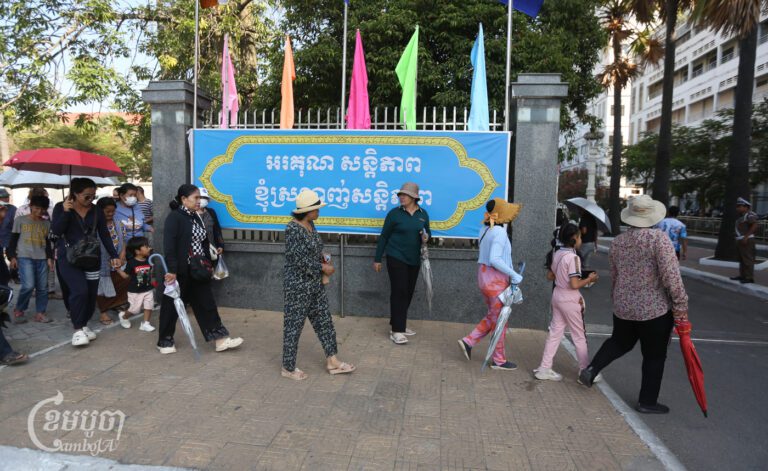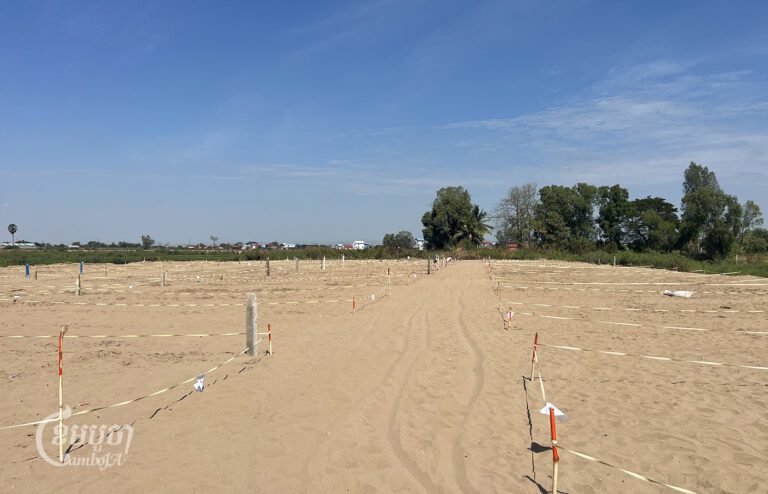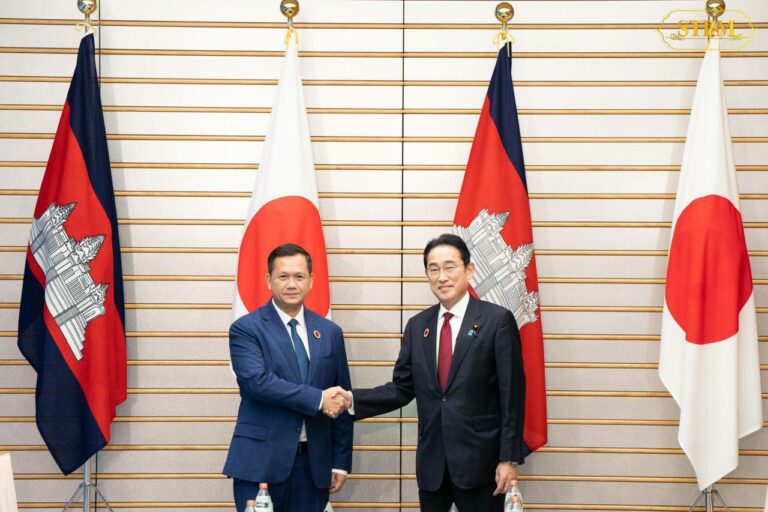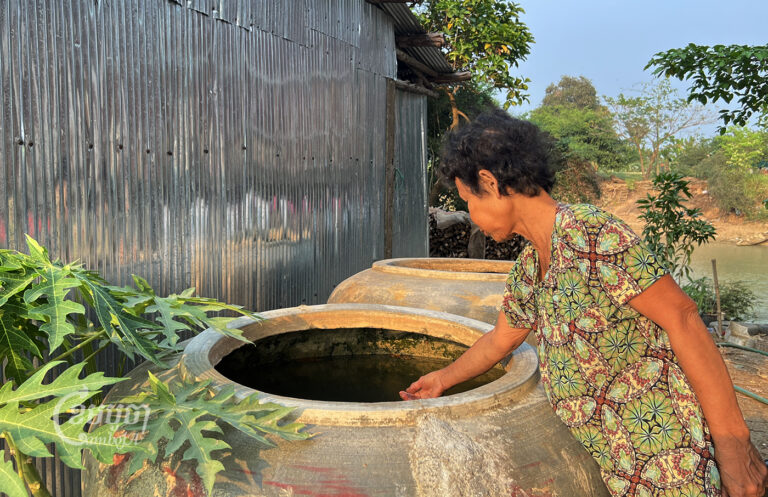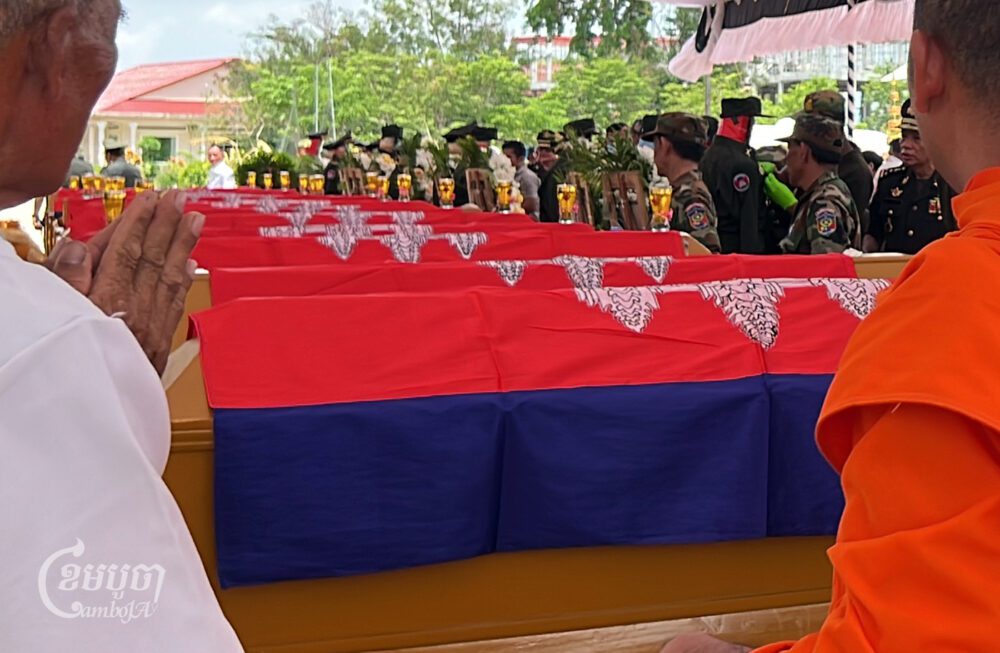Residents living along the railway line in north Por Prork village in Phnom Penh will finally have 24 hour-access to clean water once the Phnom Penh Water Supply Authority (PPWSA) fully connects the water pipes. Villagers are keen to have clean water in the next few days after they pushed for it several times with the PPWSA.
At the site, PPWSA staff were digging the ground and laying pipes to every house following the petition and a gathering of 50 residents at PPWSA office last week and seeking an intervention from Por Senchey district authority.
“Since Monday, excavators have been digging the ground along the railway lines to lay water pipes,” said Vong Sophany, a resident from Por Prork village, adding that work has reached 60 percent.
After that, water meters will be installed in the villagers’ houses where each household would be charged 700 riel per cubic meter.
“We’re now waiting for the water authority to finish laying the pipes and fixing the water meter. It’s almost done now,” said Sophany, adding that access to clean water is a human right.
Sophany said her community does not have land titles even though they have been living there for almost a decade.
“The authorities told me that we are living in a slum [but] after they rearrange the area, they will plan [something], but I’m not sure [what they meant],” she added.
The community has “tried very hard” to submit a petition and meet with the local authority and water authority, who recently agreed to provide access to clean water in the village.
“I’m so happy because we will have water soon. Our health will get better. The price is very acceptable too,” said Sophany, 57.
She said without clean water for even a day, the whole family suffers. “We don’t have enough sleep, we need to wait for water supply through the pipes between 12am and 4am. It makes me ill. You know, even when I’m sleeping, I’m dreaming about having water.”
Sophany hoped that the authorities would respond frequently when people need support like access to clean water and better roads. “We are thrilled to receive more responses whenever people need help.”
Another villager, Phan Pheakdey, 42, told CamboJA that he is happy to have clean water all the time in three days’ time.
Prior to the PPWSA agreeing to connect the water for villagers, they were asked to put their thumbprint on the petition for submission to the district chief and PPWSA. Pursuant to that, the villagers asked PPWSA for a meeting to process their application as soon as possible.
“After following up with them many times, PPWSA came to meet us at a [nearby] pagoda to tell us that we live in a slum area, so they can’t provide clean water,” Pheakdey said.
However, villagers were asked to select three people as their representative to contract with PPWSA in the water application process, he added.
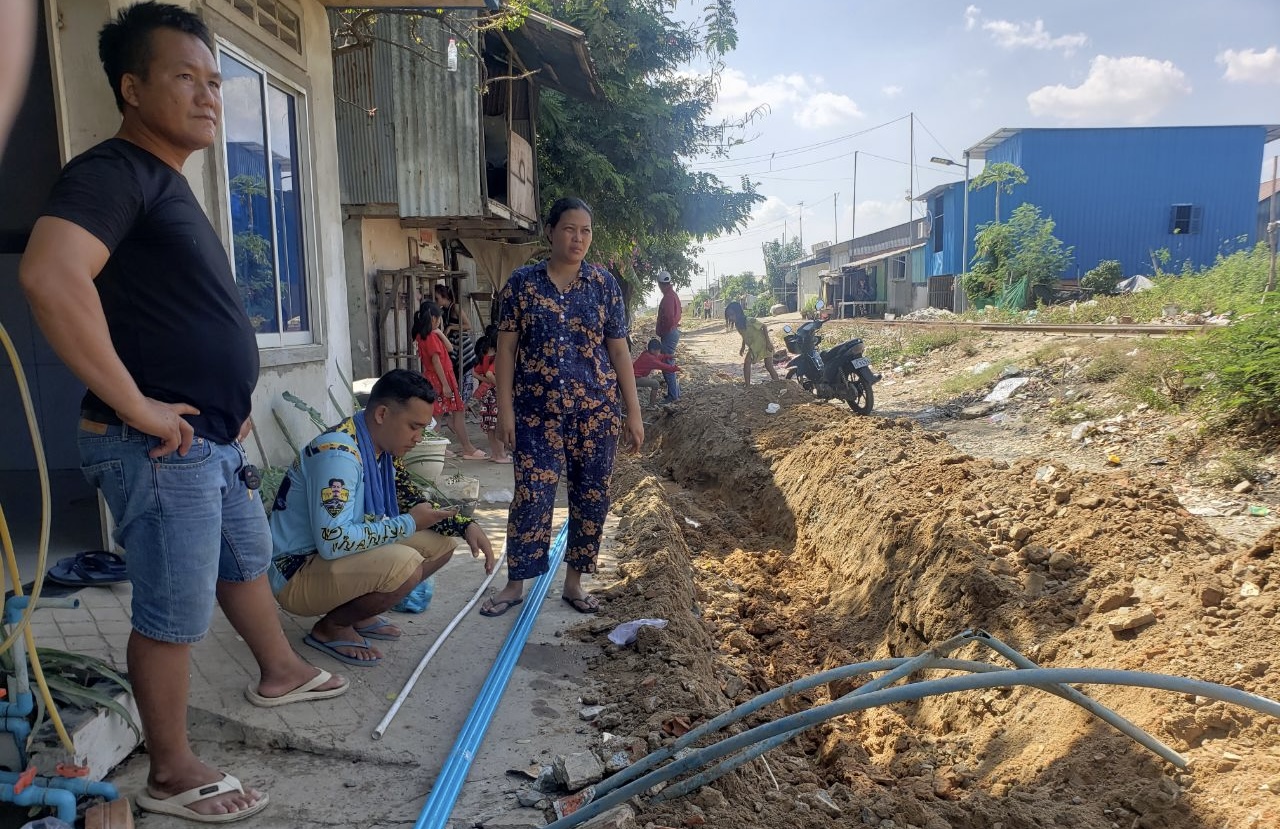
People who live in Phnom Penh’s suburbs and in some parts of the city usually do not have access to water for short-term use during the dry season. The water authority often reasoned that development and population increase were to be blamed for the lack of access to clean water.
Teab Van Roeung, chief of Ka Kab I commune, expressed happiness after learning that 93 families in Por Prork village will have water soon, as he knows that their lives have been difficult without clean water.
“We are happy. They have faced difficulties that is why they requested [for water connection]. People there need water the most. I am so excited that they have access to it now, “ said Van Roeung.
He hoped that in future the local authority would help villagers more to access clean water at an acceptable rate, facilitate meetings, pick representatives in the village and negotiate water connections with the PPWSA.
The government has promised Cambodians that everyone would have access to clean water by 2025. In Phnom Penh and Takhmao, residents would have clean water supply this year, according to a March 2023 PPWSA news release.
Som Sovann, director of PPWSA business department told CamboJA that the process of connecting water for Por Prork village is now complete. The next step is to connect the pipes to the installed water meters.
“We have been using an excavator to lay the pipes and installing water meters since Saturday. We also helped them to prepare some of the documents with the commune chief,” said Sovann.


